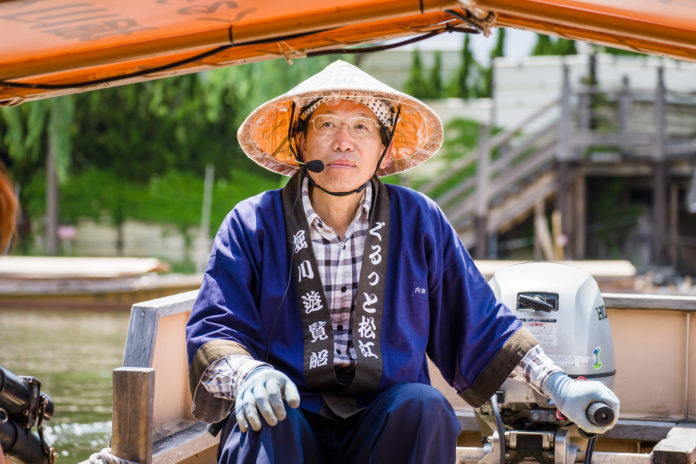 A Japanese tour guide in Matsue, Japan
A Japanese tour guide in Matsue, Japan
THE Japan National Tourism Organization (JNTO) is planning to further deregulate the industry.
Current proposals include a relaxation of rules governing bilingual tour guides and to permit hotels to sell tour packages.
Tour operators have welcomed the move. “We are very happy and we see it as another step by the government in the right direction,” said Ashley Harvey, manager, president’s office, of Walk Japan.
“We believe it shows that the authorities here are doing what they can to get up to speed with tourism and we’re delighted to see them taking it seriously,” he added.
Japan is expecting tourist numbers to easily surpass the 20 million figure this year and has set a target of 40 million overseas arrivals by 2020.
According to JNTO and the Japan Tourism Agency, deregulation and heavy investment in infrastructure is required to help reach that goal.
At present, 75 per cent of licensed bilingual tour guides are based in the nation’s big cities, leaving large gaps in coverage of more rural areas. In addition, 70 per cent of them are fluent in English and Japanese and not other languages.
Yet, Hidesada Shimazaki, an English-language guide based in Tokyo, warns that overly zealous deregulation could create more guides than there are positions.
“I believe there are about the right number of guides at the moment, especially because many FITs and Western travellers in general do not require guides when they go to rural areas,” he said.
“Also, I fear that the quality of guides will go down if they make the tests too easy, and that would not be good for travellers either.”
At present, the test to be a licensed guide is held once a year and includes tests on language, Japanese history and the geography of Japan. Only around 20 per cent of applicants pass each year.




















